
Write what you are looking for and press enter to begin your search!

Live News
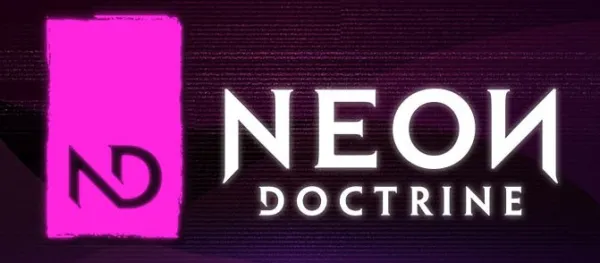

Level Up with Neon Doctrine: CCO Vlad Tsypljak Talks About Game Publishing
In the gaming industry, we hear about the developers, but what about the publishing companies? The role of game publishing companies is nothing short of pivotal. These companies serve as the bridge between visionary game developers and the eager, ever-expanding audience of gamers worldwide. With strategic foresight, financial backing, and marketing prowess, these publishing giants are the unsung heroes of the gaming universe.
At Level Up Kuala Lumpur 2023, we had the pleasure to speak to Vlad Tsypljak, the Co-founder & CCO of NeonDoctrine, a popular publishing company. Neon Doctrine has swiftly become a beacon for developers seeking a platform that champions their vision, regardless of scale. You may know them from game titles such as The Library of Babel, SIMULACRA 3, My Lovely Empress and they’ve got many more that you should definitely check out. Through an exclusive interview, we gained unprecedented access to the minds driving innovation, shaping narratives, and propelling the industry forward.


 Neon Doctrine is distinguished by its dedication to fostering diverse narratives and experiences within the gaming community. With an eye towards inclusivity, they have actively sought out projects that challenge norms and bring fresh perspectives to the forefront. This concerted effort has yielded a portfolio of games that resonate with a broad spectrum of players, forging connections across cultures and demographics.
Neon Doctrine is distinguished by its dedication to fostering diverse narratives and experiences within the gaming community. With an eye towards inclusivity, they have actively sought out projects that challenge norms and bring fresh perspectives to the forefront. This concerted effort has yielded a portfolio of games that resonate with a broad spectrum of players, forging connections across cultures and demographics.
Get ready to dive into the world of game publishing and discover the magic-makers who make it all happen!

Vlad: Yeah, hey I’m Vlad from Neon Doctrine, one of the founders and CCO. So we started the company about 10 years ago in China, me and two other guys. So we started with introducing Chinese indie games, premium Chinese indie games to the West and then Western games into China. And it kinda grew from there and we opened up another office in Taipei.
So most of us are now in Taiwan and then we still have a small team in China who handles all the China publishing. But the Taiwanese branch does all the worldwide. And we also do some co-development and outsourcing services now as well. Yeah, that’s the short version.
Vlad: So we kinda were at the right place at the right time. And back then, Chinese market, it was only just free to play, idle clicker, mobile games, MMO, stuff like that. So nobody was really buying PC games, the console scene was not existing because the console ban was still in effect. But we met a few local Chinese developers, also like kids fresh out of university, like 20, 21 years old and they were making Lost Castle. So it’s like the rogue-like 4 player co-op 2D beat-em-up, kind of like similar to Castle Crashers.
And then we thought it was really cool and we figured like, you know, they were talented developers. It seemed that they had a lot of potential, which they did. So we kind of signed with them and the game honestly just blew up in China and in the West and kickstarted this whole wave of premium Chinese indie games. And you know, the rest is history.
But I met one of my co-founders, Ian. I met him at a board cafe back in the day. I used to work in cybersecurity for a Chinese company. And then they fired all the foreigners. So one evening my friend messaged me, he was like, hey, do you want to come play board games at my bar? And I was like, well, it’s Thursday night, I got nothing to do.
So I went there and Ian was there and the game they chose to play was Twilight Imperium. So we met up at 7 p.m. and we left home around like 4 a.m because, you know, that game is long. And turns out the offices were not far where I used to live and I kind of went to check out the offices because it was the moment they just got the first Oculus VR dev kit and the Samsung Gear VR dev kits. Well, not dev kits, it was just Samsung Gear goggles and I was like, hell yeah, I want to check it out. And I went there and then just kind of never left.
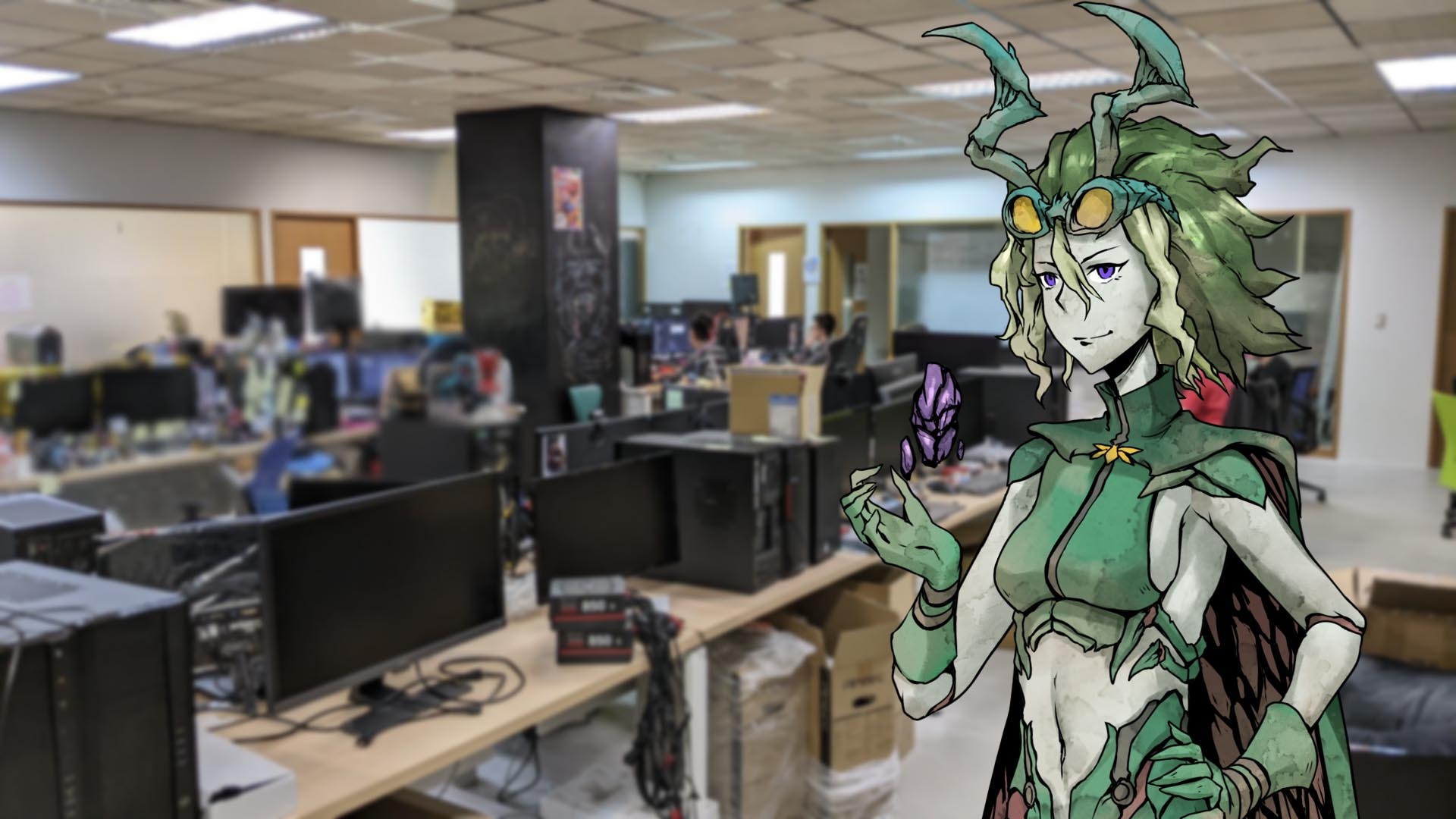
I mean, honestly, it’s a mix and match of things, right? So in our case, because when the company was first started, we didn’t have any investors or VCs or backers or anything. So it was just, you know, the little amount of money that we had, we had put into it. So we couldn’t really compete with the big boys. Because we didn’t have money or the funds to offer the developers.
So instead, we offered a lot of labor and passion. So we put a lot of hard work to actually put the developers, you know, up front and it kind of worked out. Everybody was happy with what we were doing and we tried to do what’s best for the devs because, you know, living in Asia for, oh my God, almost like 15 years now.
You do see that it can be tough here for developers to travel. You know, issues with different passports, it’s expensive. So they don’t have the same opportunities than the developers that are based in states or Europe. So we really worked hard to help represent them in, you know, showcases abroad and get in touch with media because also when we first started, you know, the developers, the first few developers we worked with in China, they didn’t really speak English. So language was also an issue because none of the Western media speaks anything but English most of the time and Chinese is out of the question.
And, you know, the mentality, how things are done, how you approach influence, how you do press and PR in China is very different how you do it in the West. So we were there kind of trying to bridge the gap for both, you know, Western and Asian indie games. So we were in that unique position. And we always try to be very transparent with our devs and people we work with. So, you know, the contracts were very simple.
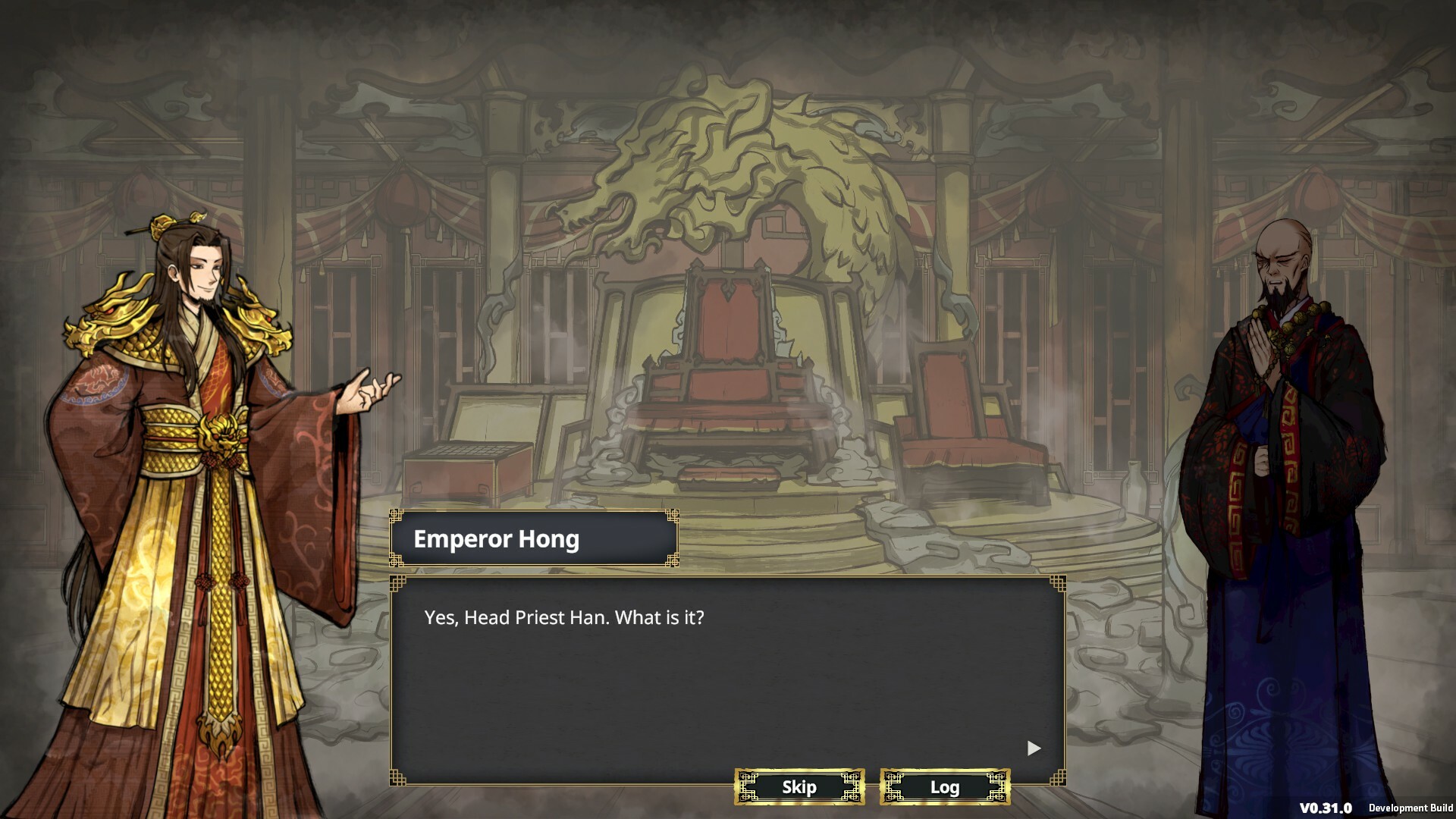
So there was no, like, complicated wording or anything like that. So we always try to support where we can. And, yeah, I guess that’s kind of the reputation we got. So, like, this is one of the publishers in Asia who does not screw the devs over because at that time in China, it was also a little bit of a turbulent time. Mobile publishers can be complicated to work with in China especially if you don’t know the lay of the land.
There’s a lot of predatory ones out there and once the indie boom started, a lot of those not-so-great shady publishers started doing all the indie games as well. And then they brought over some unpleasant practices to that. So it was very difficult for people who didn’t know what was going on inside of the country to find a trustworthy partner especially if the Western indies or Western publishers don’t speak the language. They’ve never been there. They don’t know how it works. So what set us apart is we were kind of more transparent and we understood how both sides of the world worked, in a sense.
Like how it is in China, how it is in the West and how to navigate these little intricacies when it comes to cross-cultural communication and also making sure that different parties understand each other in a way that they don’t try to fight or argue. Because it can be complicated, right? Language barrier, cultural differences and things like that. So we were in that little sweet spot.
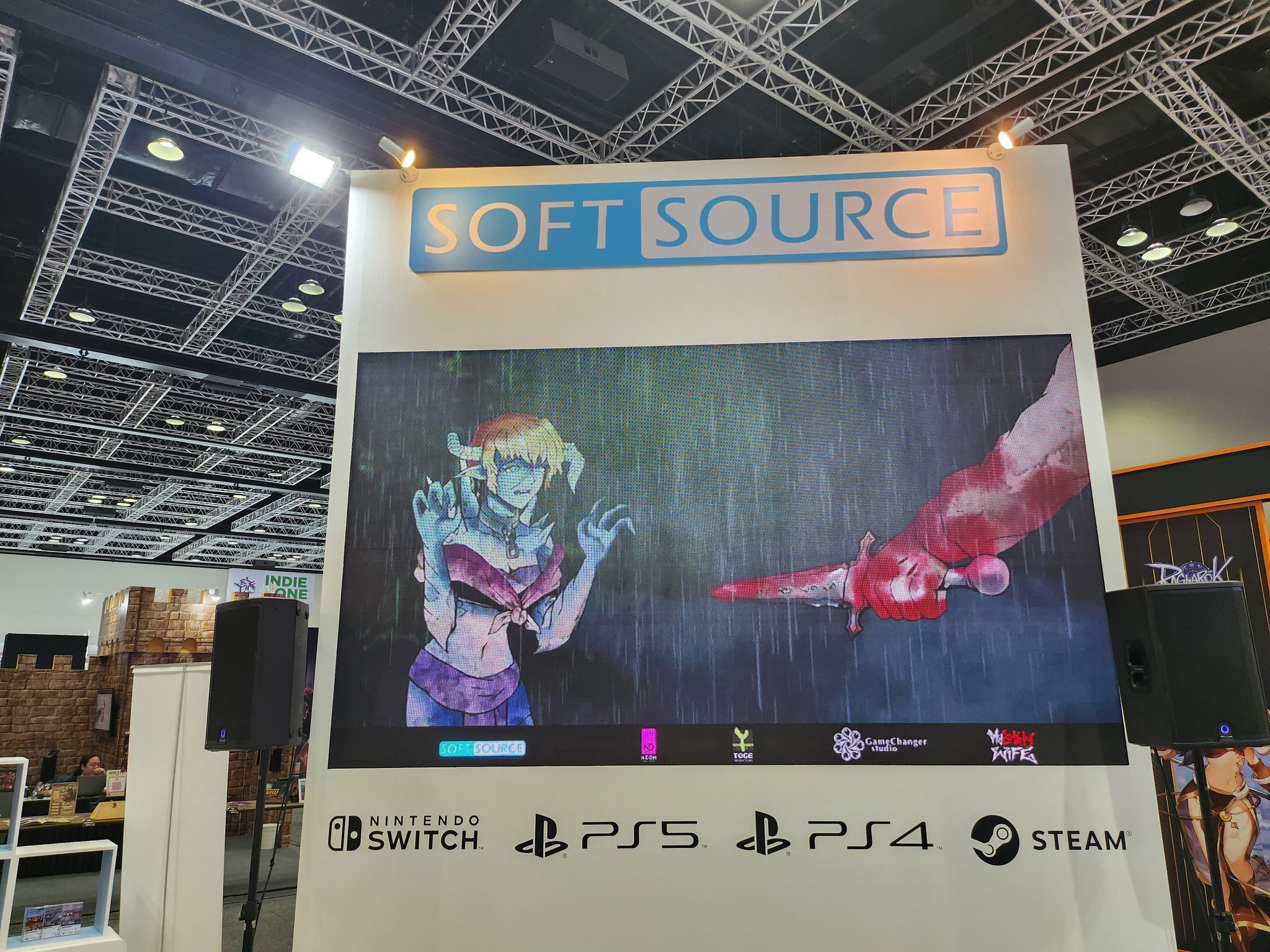
The way the industry is moving now and the dev teams that are popping up and the games that are being made in indie teams are higher and higher in quality. So your traditional publisher model, let’s say from the 90s, early 2000s, where it’s just like, Okay, we do PR marketing, we’ll help you distribute your games, we’ll help you put your physical things in the storefronts. It doesn’t really work anymore because the devs, the games are higher production, so they need a lot more support. So right now, when you sign your games, you need to provide more than just the basic PR marketing because if you just provide that, they can just go to the higher PR marketing campaign for like $8,000 or $5,000 a month and boom, done, right?
So in our case, we expanded the studio. And now we also provide co-development and art services and all the ports we can do in-house. So if the developers want to do their ports, they can. But if they want us to help them do the ports, we can too. Or if they don’t want to touch any consoles, we can do all the ports for them. And then in our case, we just take the revenue shares. So for example, if we do the ports, then it’s 50-50 split on the platforms we port it to and again, we still work with a lot of emerging regions and smaller teams.
Sometimes, most of the times, they also need help in setting up proper development pipelines, like scheduling, how to operate, how to work, and help with programming, art, animation, tech art, and maybe level design. So we can provide those services as well. Because it’s a small team, so instead of them hiring more people or outsourcing it, we do it in-house. So less stress for them, less stress for us, and we have a bit better oversight of the production timeline because if it’s first or second-time developers, they really can’t scope out the projects well. If you’re doing it for the first time, you don’t know what you’re doing. So if we get more integrated into their process and get them more integrated into our process, you can streamline the whole thing. It’s a bit safer and more secure for everybody and they get the experience of like, okay, so this is actually how you structure a project and things like that.
So yeah, going back to the question, I think publishers need to start providing more services besides just your, you know, sign up a press release and post a tweet, right? So you need to have kind of like closer cooperation with your developers, whether it’s like porting, development, art support, you know, also like representing them at different showcases and things like that.
Okay, so no, because usually when we sign up for games and then before we sign the contract, we evaluate what type of services and what type of help they need. So then we kind of scope out our projects, because we also do outsourcing on the side now. But that one is mostly with AAA companies, like, you know, with Capcom, Bungie, etc. So our developers and artists are like really good at what they do. Like, you know, we did Resident Evil 4 remake, we did a bunch of stuff for that, Street Fighter 6. But of course, there are some circumstances that you can’t predict. So when something pops up, we try to kind of like reshuffle and try to make it work.
We always leave a certain buffer for the development team. I would say it’s about maybe 20%. So their tasks are filled up to about like 75-80%. So in case something happens or like the developer really struggles, we still have the flexibility to put more people to help them out. So we haven’t encountered a situation yet where like we don’t have enough manpower to support them and we need to outsource something. So not yet. Back in the day when we were smaller, yeah, when the devs would struggle with ports, we would contact some of our outsourcing companies that do, for example, porting, that we know do good work and we would then hire them to help us out. But right now we can pretty much do it all in-house.
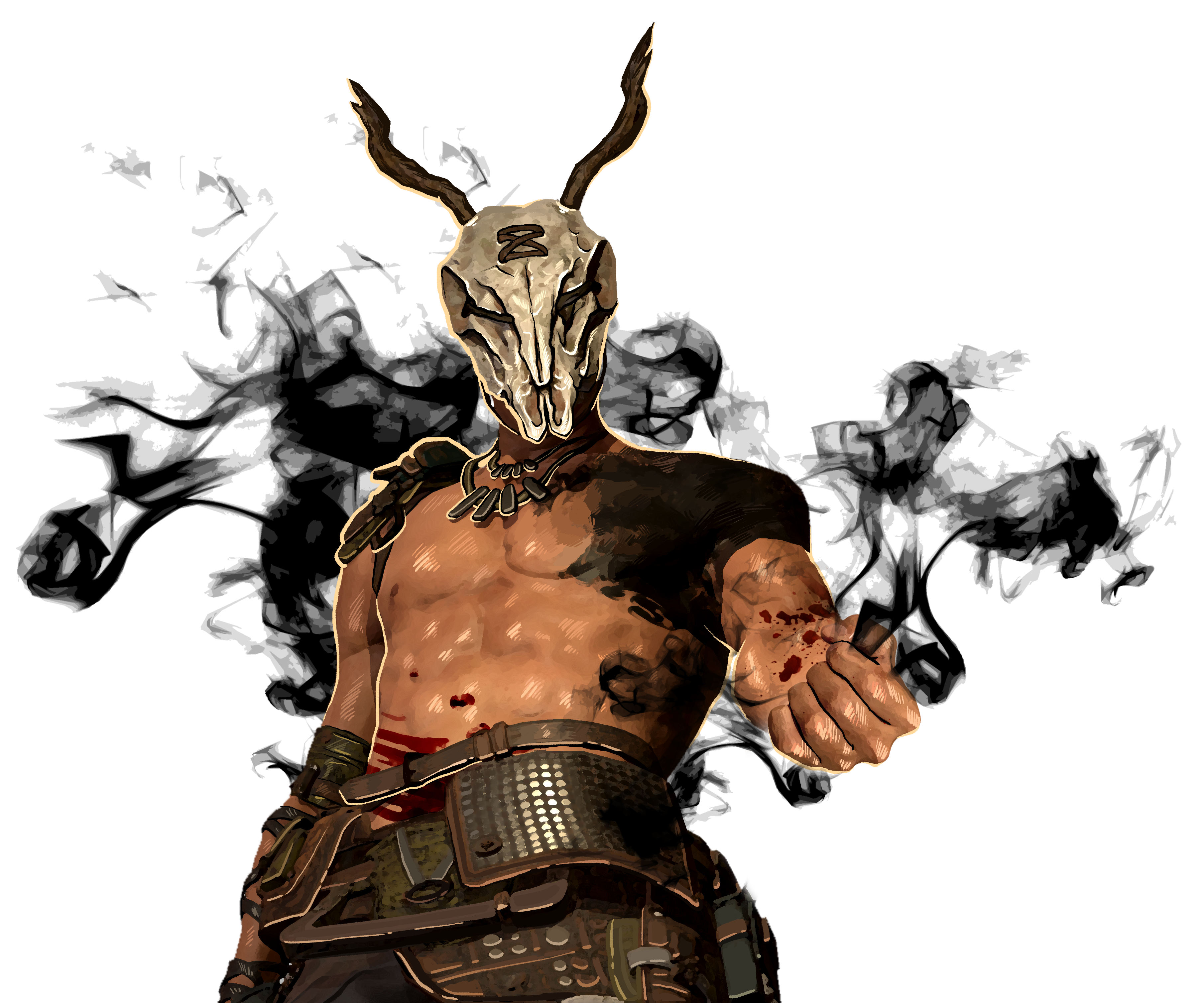
Oh, man. Okay, so we had this one game that unfortunately never managed to release. But we got these awesome bullets made for it. Like bullet necklaces with the engraving and everything. It was really cool. But we got it manufactured in China and we were not allowed to ship out of the country. Even like wearing one, it was like you need to take it off. You can’t take it on the plane or anything. So they were just stuck in one of our old offices in boxes in China.
But that was like one of the coolest things we did. But like exclusive collectibles. Oh, man. I don’t know. So for one game we want to do like an ox skull because like a boomer shooter FPS, it’s Devilated. So the dev has like the big skull. So I’m thinking of making that as an exclusive for Storm Press. Oh, man. Nothing else comes to mind right now.
We have My Lovely Wife body pillows. Which will show in October at Dread XP. A female succubus on one end. Incubus on the other. So you can choose your preference.
Wow. It’s a bit tough. You know, intuition comes into play a lot. Because you sign a deal and you end up working with them for many, many, many years. And if it’s successful, usually they come back to you for their second or third title. So you really need to do your due diligence now. In terms of does our values align? Does the mentality align?
Of course, you know, different cultures, different understanding, different ways of communicating especially if people are in different countries. So you talk online. So sometimes in chat things can come off, you know, different than they actually mean. But yeah, we’re kind of trying to figure out where their headspace is at.

For example, how do they take feedback? When we first like test the games, we have a follow-up call with them. And we give them usually some feedback. Some good comments, some negative comments. To see their gut reaction. Because, you know, if you tell them something and they’re like, Oh my god, no, no, no, this is the best thing I did. You don’t know what the fuck you’re talking about. Then you like can’t really work with that person. If you give them a little comment and they get so agitated. So I’m like imagine in the future when you do imports or you’re like further developing the game. And there’s things that needs to be changed, things that need to be iterated and they have like this absolute wall or negative reaction. It’s going to be very difficult to work with those people. So you’re kind of trying to like see scope out.
And, you know, what’s their mentality? How their reaction to like various things? How flexible they are? How do they listen to feedback? And how open they are to actually hearing what we have to say and taking it into account. Because, you know, we had developers that we… In order to like do any small changes or like adjusted discounts. They always wanted like two-pager examples of why we’re doing this and this and that. So it can get very frustrating where like you know what you’re doing. You signed with us for this reason. We know what we’re doing.
I’d rather spend my time thinking of ways to promote than writing documentation explaining why it’s more beneficial to have a 25-30% discount during a daily deal on Steam and not 10% discount. Things like that. So you’re kind of like trying to figure out if personalities and the mentality align. Because you’re going to be spending a lot of time working together.
I mean there’s no like formula for this, right? Because you also need to see their technical skills. And after you play their game. It’s just… Yeah. Yeah, yeah.
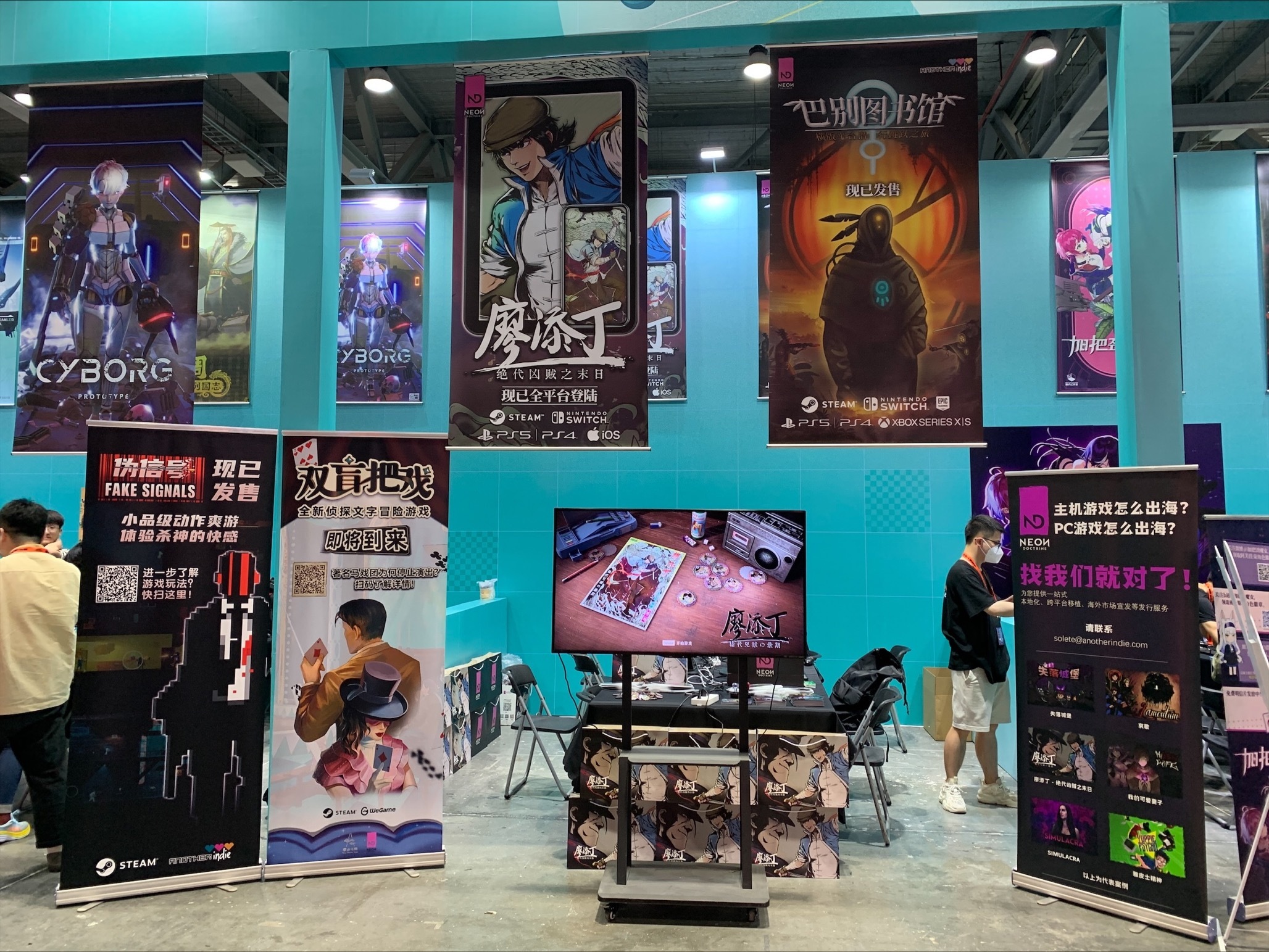
I mean we… Of course we had a few issues here and there. The most simple example that comes to mind is one of our older games where we really had to explain to developers like listen. It’s a 3D action game. You need controller support. They’re like no, no, no, no, no, no. Because developers from China are like no, no, no. Mouse and keyboard is enough. We don’t want to do controller support. You really have to. But now in China they all play like Dark Souls games with a mouse and keyboard.
I’m like yes, but you know we’re publishing worldwide. Like Western players are going to be like… Not happy. So they still didn’t listen to us. And we were like okay. How are we going to fix this? So we did like a open slash kind of closed beta. And then to get the feedback from the players. And then they saw the feedback from the players. And the feedback was like where the fuck is the controller support? And then we showed it to the developers. They’re like oh okay, okay. We’ll do the controller support. We could have saved like two months of like back and forth if you just listened to us.
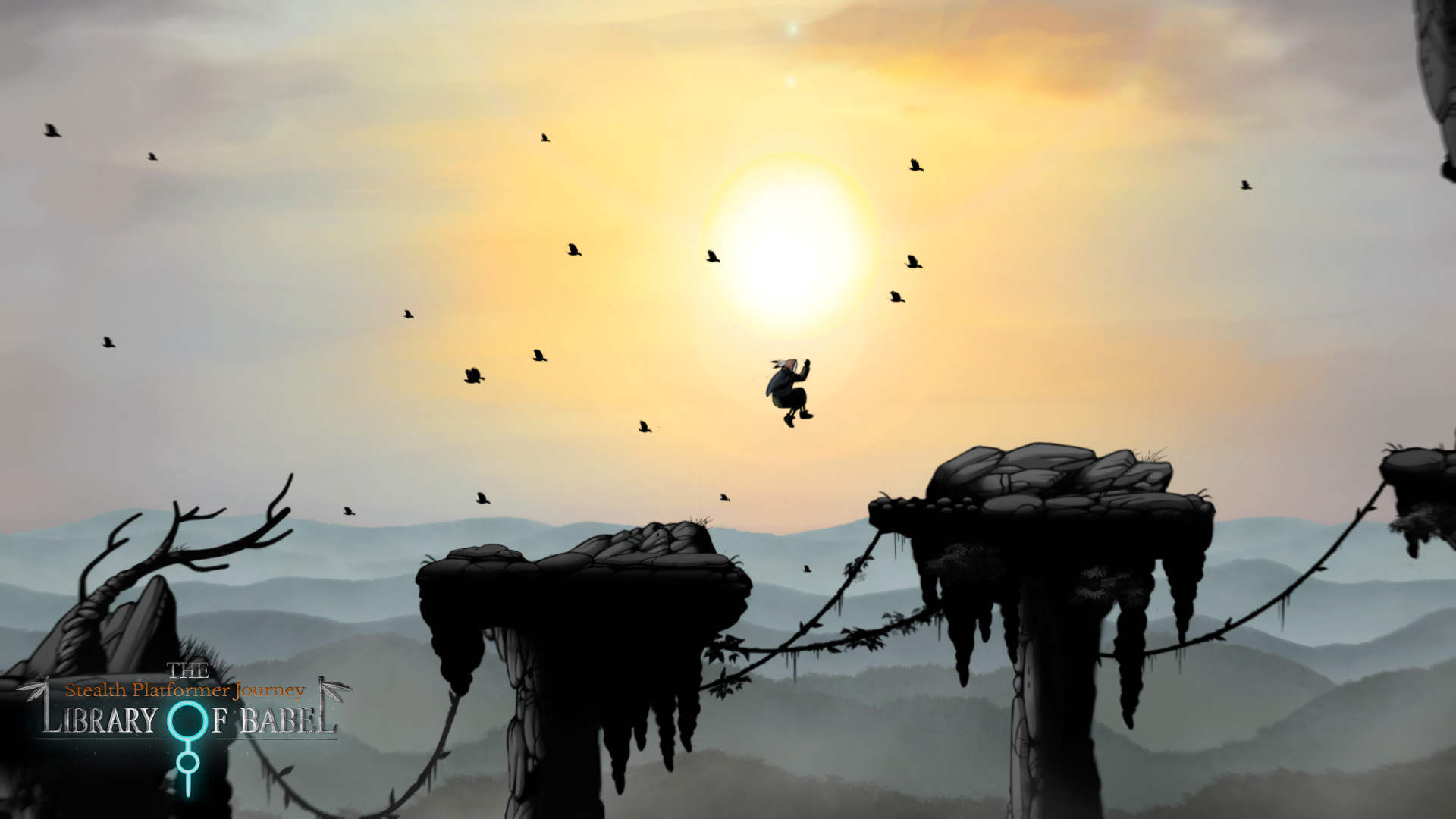
And then we had a reverse version where it was a JRPG. And then developers didn’t want to implement mouse and keyboard. They only had the controllers. Like guys we still need to have a mouse and keyboard. They’re like no, no, no, no, no, no. And then the game launched without the mouse and keyboard. And there was a flood of negative review on Steam from players. We were like what the hell guys. And they were like okay, yeah, yeah, let’s implement mouse and keyboard.
So just like the first examples that come to mind. And then later on there’s always some intricacies when sometimes you need to like work out alternative solutions. When the development takes a bit longer or you know the COVID impacted some of our studios, so they’re like oh shit, we’re running out of money but like half of the team is sick in the hospital. So we can’t hit our milestone but we need money to keep doing this. So you kind of like then try and need to like sit down and figure out how to make it work. I mean you always try to do what’s best for the developer. But again you know we’re not made of money. And it’s not a charity. It’s a business. We managed to make it work.
But yeah it can lead to some tough conversations trying to figure out how to make it happen without destroying the studio or ourselves. So those can be quite tricky. But that’s like a lot of Excel sheets and just numbers and math.
It’s mostly the ones that try to do what’s best by the developers honestly. Like you know they support the industry. They support the region where they’re in. And you know help out as much as they can and provide a bit more than just the 90s publisher where they’re like we put your game on the shelf and then we’re done because you know it’s different now. It’s very different now. I’m guessing it’s more when they start also being maybe a little bit playing. Not a big part but bigger part in the overall vision and development process. But like not by modifying the artistic vision of the developer.
But just helping them with tools to make sure that developer can fulfill what he wants to do but in a way that it doesn’t damage them. Because sometimes like feature creep is a big thing and if they’re developing and they’re like very close to the game they can’t really see it externally. So we try to help with things like that. And also because we do work with a lot of smaller teams. They don’t have the capacity to like all the community stuff and social media.
So we also help them get more like actual player and community feedback but in a more digestible form. So you don’t have to read like 150 Discord messages but kind of like an overview of it. Like you know so this is what they think. X, Y, Z. So maybe we should change this and that. But of course most of the time it’s up to the developer.
If they want to change like mechanics and things like that but we try to make them aware. So you know. So if we do this. Here’s the consequences. Like we can do it. But as long as you’re aware of the risks and the possible fallback.
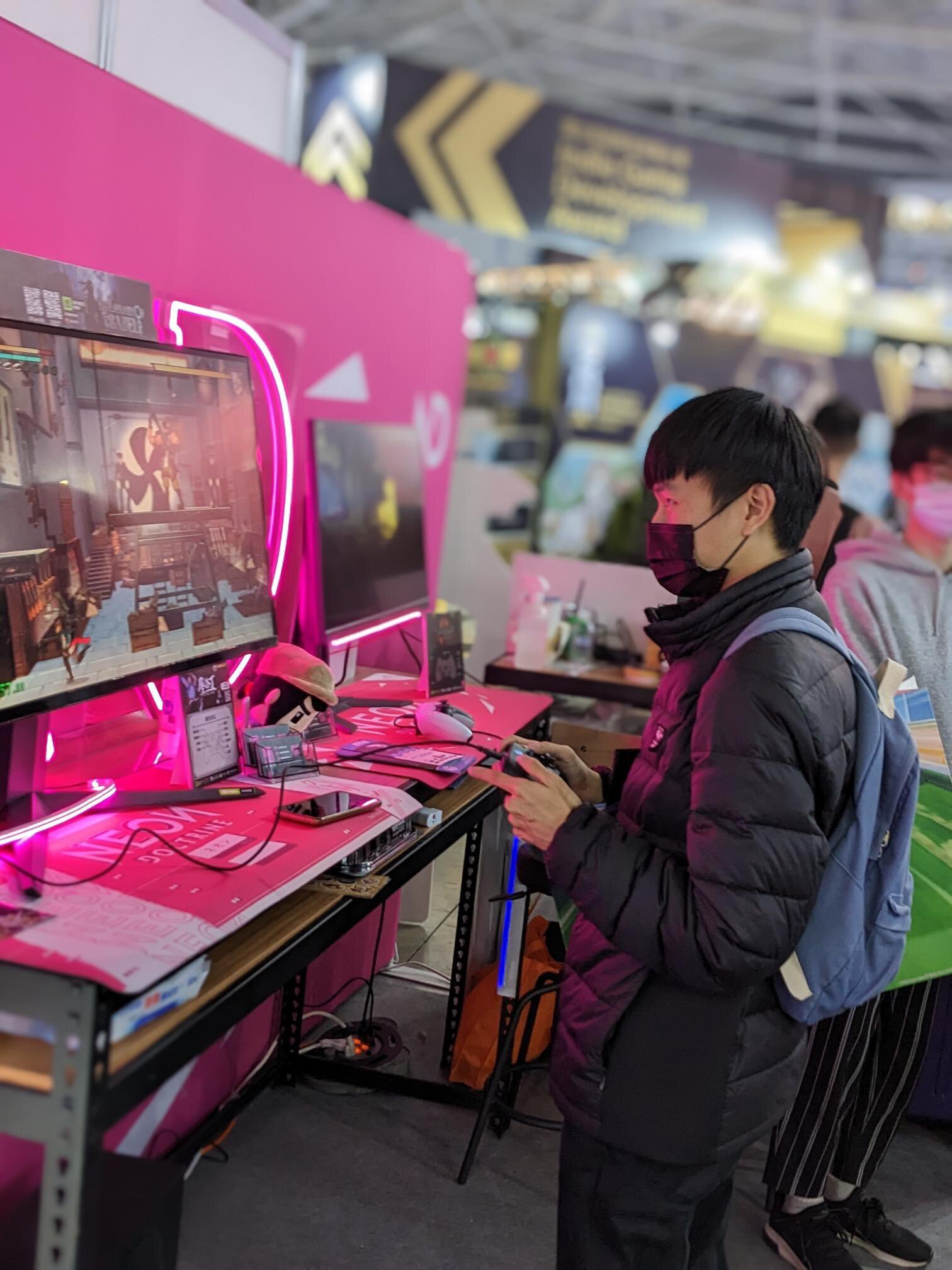
So I did a whole talk last year at Level Up KL. About this. Of how to pitch the publisher. And what to watch out for. So I actually don’t know if those talks are online or not. This year they recorded it. But I don’t know if it’s like public. Or they just record it to the government internally.
Oh man. Yeah. I mean the first thing is. Always get a lawyer to check your contract. Like it might cost a few hundred dollars, but it is so worth it because legalities is hard and you need to check it. You need to check it. Just do it. And the other thing about approaching the publishers, make sure your deck has all the information, your timeline, your budget, what are you looking for, what type of your game.
Do your research so you don’t just spam random publishers, make sure that the game you’re making aligns with the games that the publisher publishes and the community plays. So it’s going to be easier for the publisher to market it because they already have an established community that will have an interest in the genre you’re making. And do your research on the publishers as well. So go and talk to the developers that work with those publishers and not just the successful ones, talk to the ones whose games didn’t do well or flopped because they will give you some insight. If you go and talk to the devs and they all say like, we’re under NDA, I can’t tell you anything. That’s a bit of a red flag also.
So US Neon Doctrine, Raw Fury, our publishing contracts are public, so you can actually go to the websites of each one of us and read and you can kind of get an understanding. They’re all different, but the overall thing is kind of the same, just the percentages and things like that. And also if you don’t know how to make a pitch deck, Raw Fury has a really good template on their website as well that you can download and it’s very simple, but it tellsy ou what information to put. So some gifs, timeline, budget, marketing, what you need, et cetera. So it’s very simple because for us, not just for us, but like publishers in general, investors, we get so many pitches that we really can’t read like 25, 30 pages of stuff. We just need some information at the glass so we can see, okay, does this make sense for us? Does it fit or not? And if it does, then we have a follow up and then we go into deep details but don’t send five page essays.
So we announced Altheia: The Wrath of Aferi. It’s two brothers in Italy making the game. And then the other one was My Lovely Empress and that was from Game Changers. So. My lovely Daughter. My lovely Wife. So that’s their third game and with that one, we’re helping them out. We’re actually helping out both games with development but with My Lovely Empress, we’re doing all their 3D models .So kind of like bringing their work series to the next level. And then we’re going to have a bunch of announcements in the end of October during Dread XP in Gamescom Singapore and Steam Scream Fest because they’re all kind of like at the same time. So it’s going to be more horror focus. There’s going to have more stuff for My Lovely Empress, some My Lovely Wife announcements.
Actually, this weekend is Realms Deep, so we’re going to have a big update for Devilated, which is like our retro FPS boomer shooter. It’s out on early access, so it’s still like, building up on the community and we’re helping because it’s one developer from Vietnam, so we’re helping him with some level design and implementing a lot of new features and polishing the gameplay to make it more smooth. And then I’m trying to think, oh, yeah, we have our publisher anniversary sale on the 1 December, so we’ll have some news there as well.
But next in line, I think, is Death Trick: Double Blind. So it’s like a visual novel investigation game from two ladies in China. It’s like set in the 20s circus era. Really cool. That one’s set to launch next and then My lovely Empress is set to launch next year as well.
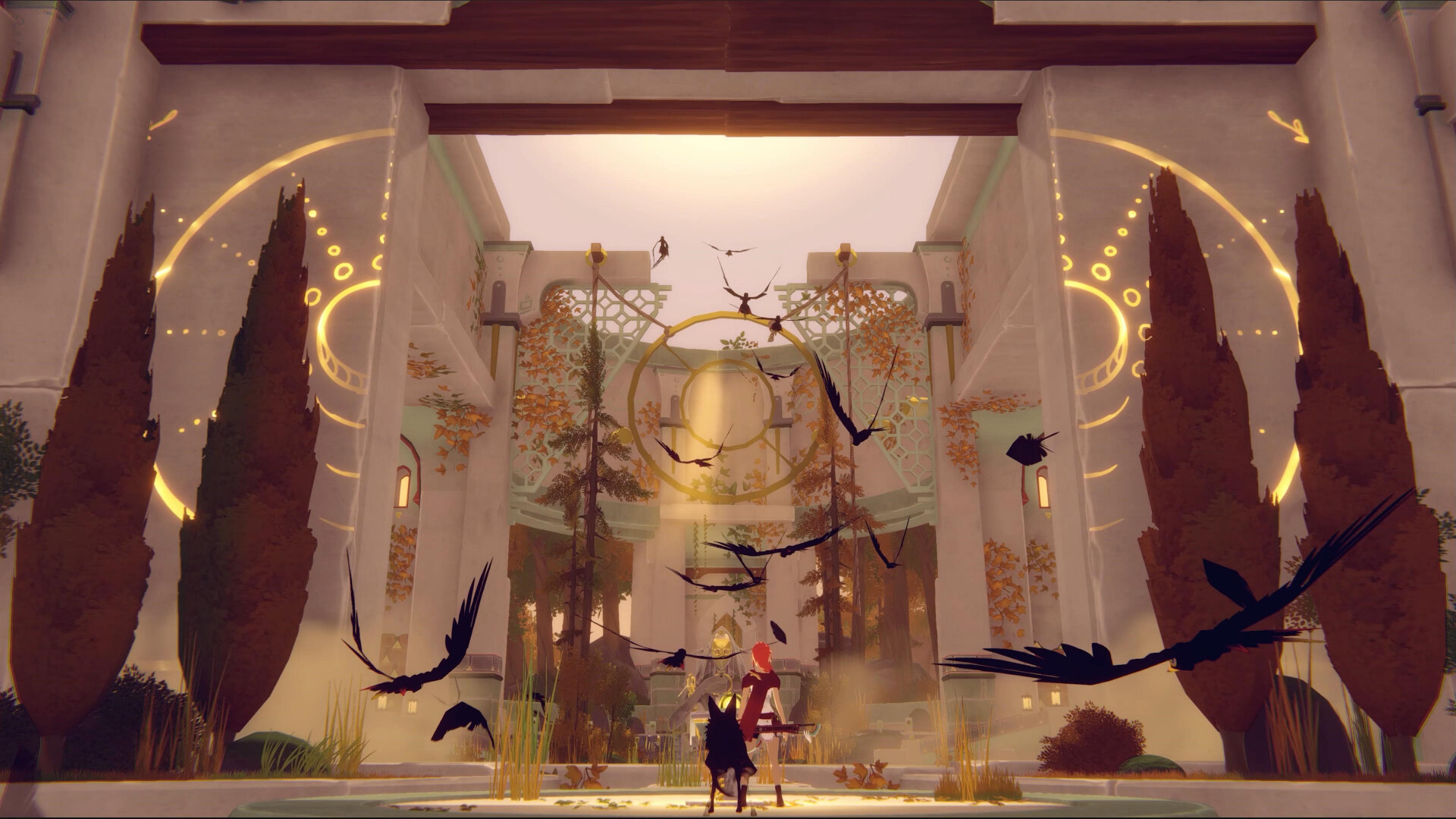
You can check out some of the games published or upcoming games that will be published by Neon Doctrine below:
Devilated is a time-slowing, monster blasting, boomer shooter with RPG pretensions, buckets of blood and a dose of ultraviolence.
A 2D Stealth Platformer and Graphic Adventure inspired by Jorge Luis Borges’ short story of the same name, The Library of Babel.
Evil welcomes you back in the third chapter of the critically acclaimed horror series, Simulacra.
A fantasy adventure game where a sword–wielding Guardian and an arcane Monk must learn to work together to defeat the Void corrupting their home. Explore ruined temples, solve environmental puzzles, rescue spirits, and defeat giant Void monsters!
My Lovely Empress is a empire management sim inspired by Asian mythology. As the Emperor of the Crimson Empire, you will build relations with neighboring rulers, balance internal factions, and ensure the prosperity of your people, all before you reap their souls to resurrect your beloved empress.
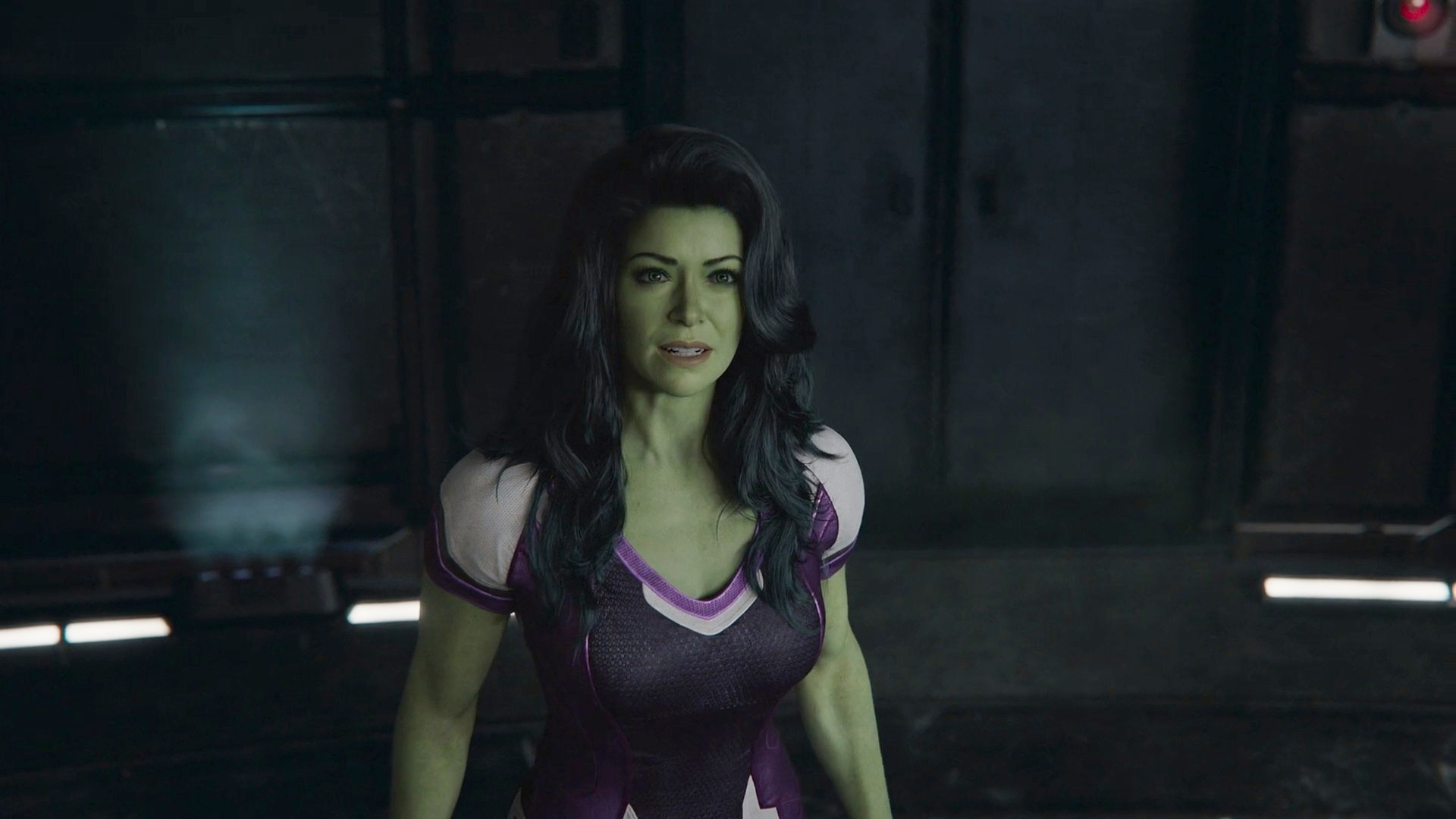
By Alleef Ashaari|October 13, 2022
The ninth episode and Season 1 finale of She-Hulk Attorney At Law is now streaming on Disney+ Hotstar Malaysia. I’ll be discussing heavy spoilers so...
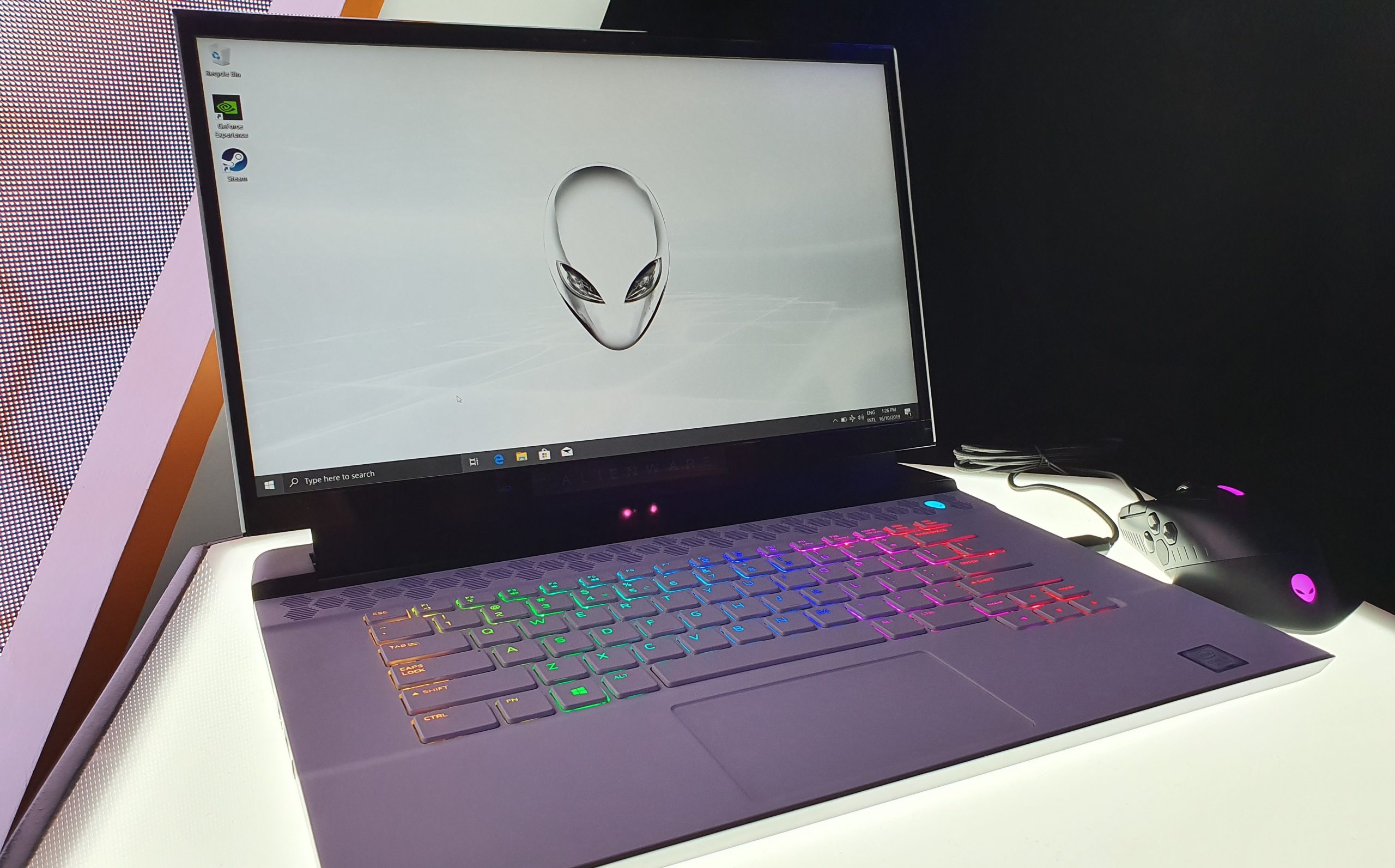
By Nadine Pacis|October 17, 2019
It’s been a brand much coveted by the Philippine market for years, and now it’s finally here. Alienware, the gaming-focused brand of Del...
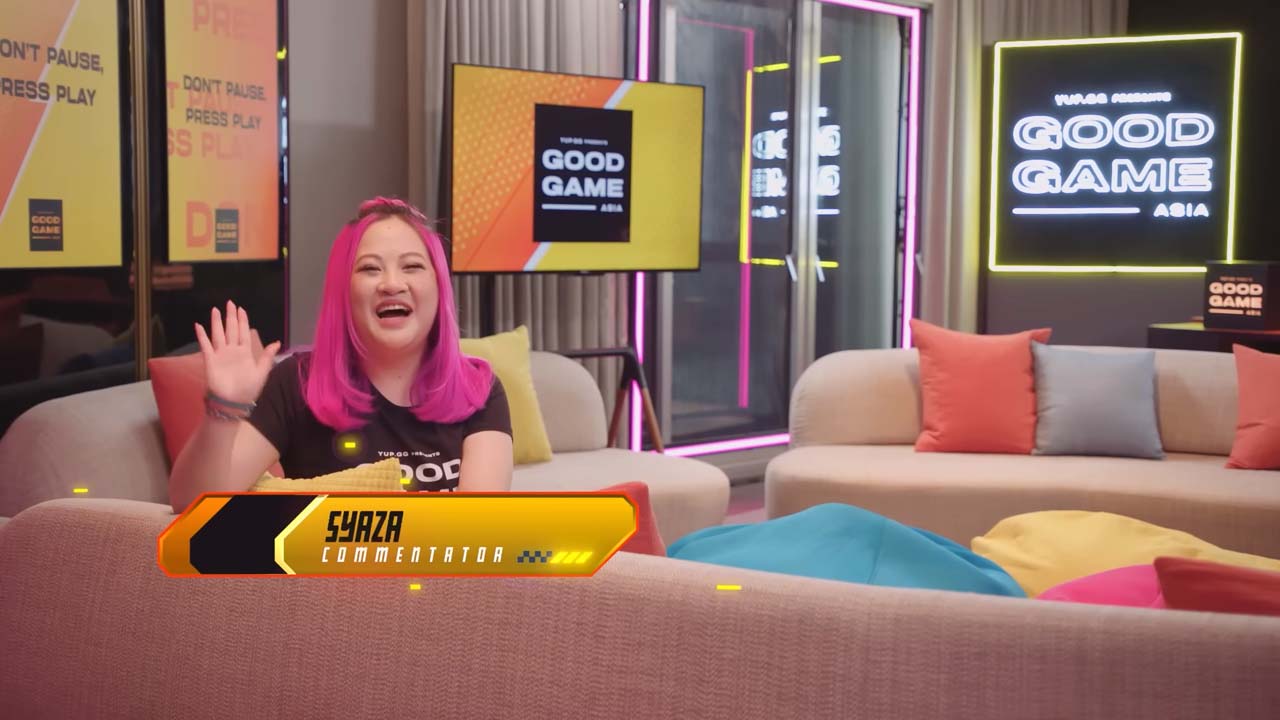
By Lewis "lickety" Larcombe|July 18, 2022
This week's episode of Good Game Asia unfortunately is a recap episode, giving the participants a much-needed break but at the same time not really le...

By Mr Toffee|February 2, 2024

By Team KKP|July 1, 2023
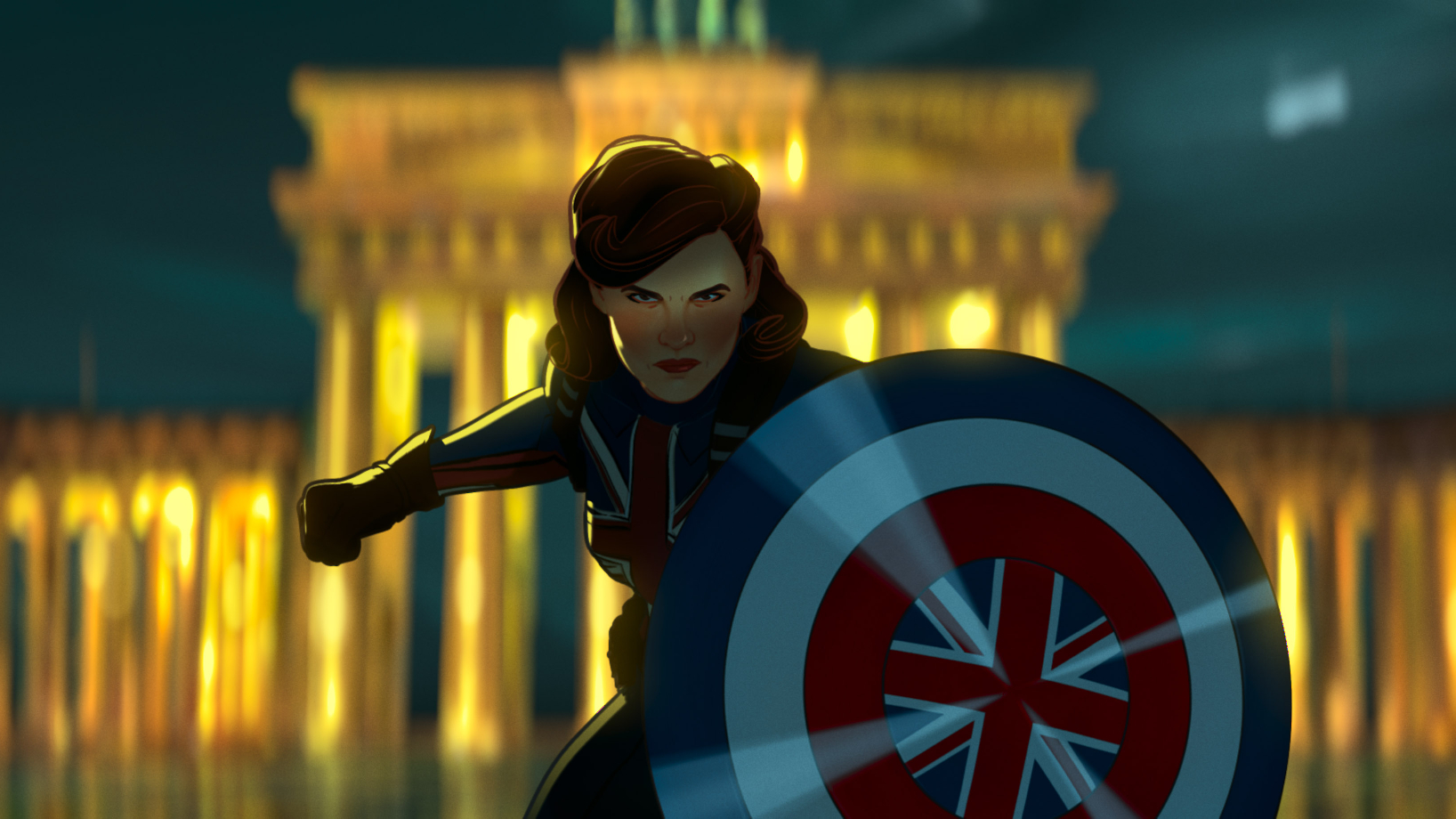
By Alleef Ashaari|August 2, 2021
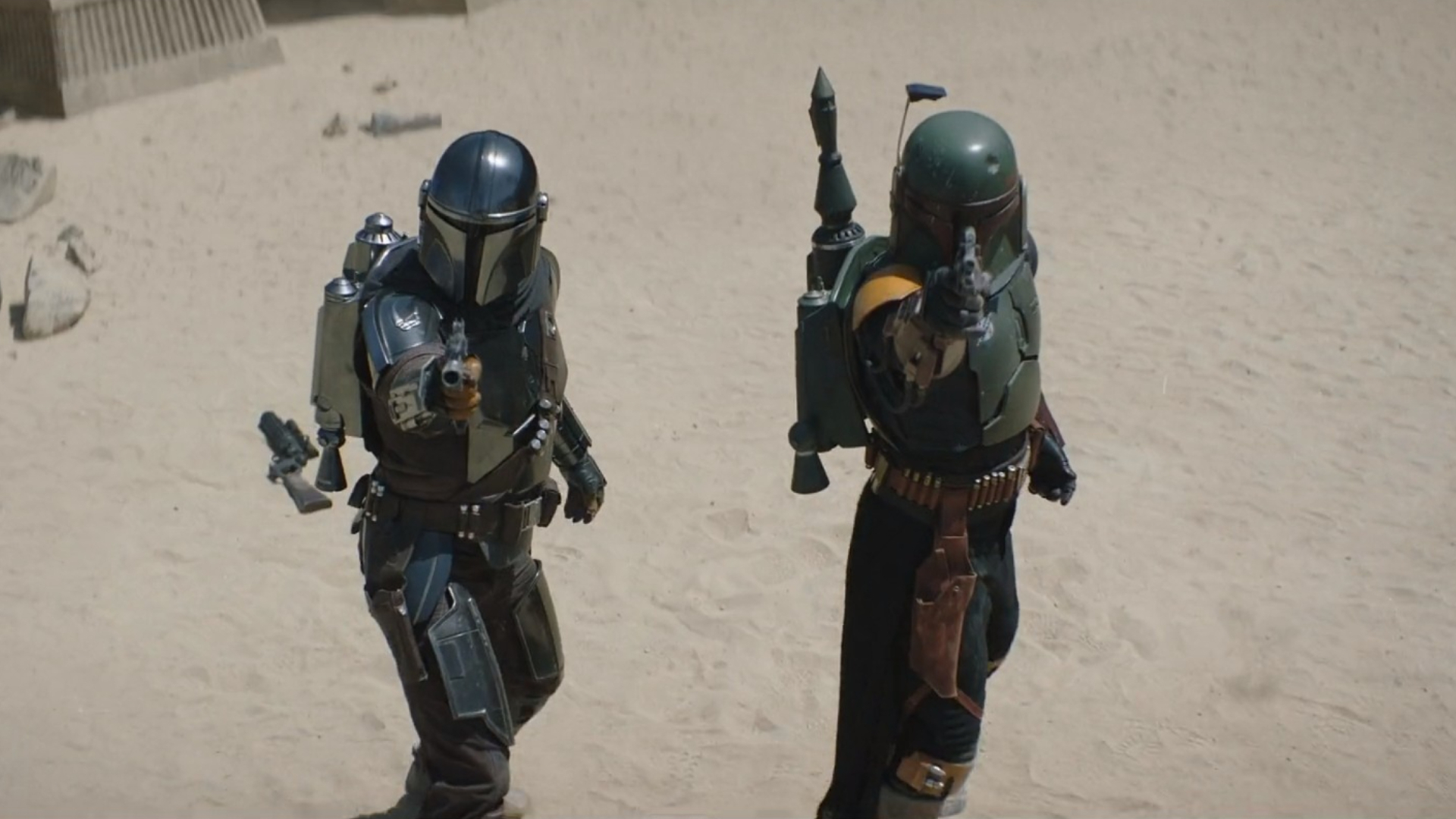
By Alleef Ashaari|February 9, 2022

By Mr Toffee|February 2, 2024

By Team KKP|July 1, 2023
Copyright @ Kakuchopurei 2024
Level Up KL 2023 + MYDCF: All Coverage & News So Far | Kakuchopurei
October 6, 2023 at 9:57 pm
[…] Level Up With Neon Doctrine […]